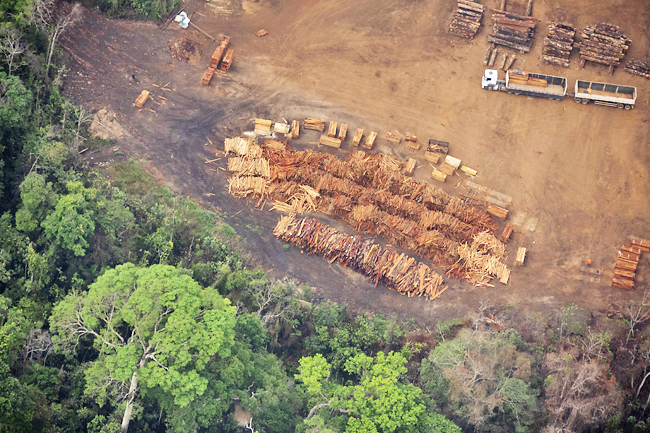BRASILIA (AP) – To combat ongoing destruction in the Amazon rainforest, Brazil announced a plan on Tuesday to dramatically expand selective logging to an area the size of Costa Rica over the next two years.
In Brazil, vast forest lands are designated as public yet have no special protection or enforcement and are vulnerable to land grabbing and illegal deforestation. Criminals frequently take over land and clear it, hoping the government will eventually recognise them as owners, which usually happens.
“The main goal of forest concessions is the conservation of these areas,” said Director of forest concessions for the Brazilian Forest Service Renato Rosenberg during an online press conference. “They also create jobs and income in parts of the Amazon that would otherwise have little economic activity.”
Companies that get timber concessions have to follow strict rules. They can log up to six trees per hectare over a 30-year period. Protected species, such as Brazil nut, and older, seed-producing trees are off limits.
The idea is that granting permission to timber companies to take a limited number of trees gives them a stake in overseeing the forest, something the Brazilian government cannot afford to do. Several studies show that illegal deforestation in concession areas is significantly lower than outside them.

Eventually, President Luiz Inácio Lula da Silva plans to treat as much as 310,000 square kilometres of public undesignated Amazon rainforest this way – an area the size of Italy.
A working group is assessing which areas should be designated as conservation areas, Indigenous territories or forest concessions.
Currently, there are 22 such timber lease areas in the Amazon, covering more than 13,000 square kilometres.
Since the country initiated its first timber concessions, only two companies have declined to renew their leases, which shows the model works, according to Rosenfeld.
Still, the programme is much smaller than first envisioned when Brazilian legislation established it in 2006.
Brazil’s Forest Service is part of the Ministry of Environment and Climate Change. It was created that same year to promote sustainable activities in public forests by private organisations.
The government plan is a partnership with two private institutions – Imaflora and Systemiq – that will help do research and design community forest management, according to an official statement.
Funding comes from Partnering for Accelerated Climate Transitions, the primary programme of the United Kingdom´s International Climate Finance to address climate change.
The announcement was met with skepticism by the National Forum of Forest-Based Activities, representing some 3,500 companies with interests in the timber industry.
“Forest management is the best way to halt environmental crime, from land-grabbing to illegal logging,” Frank Almeida, president of the National Forum, told the AP. “But there is no use in creating a project that won´t become a reality.”


